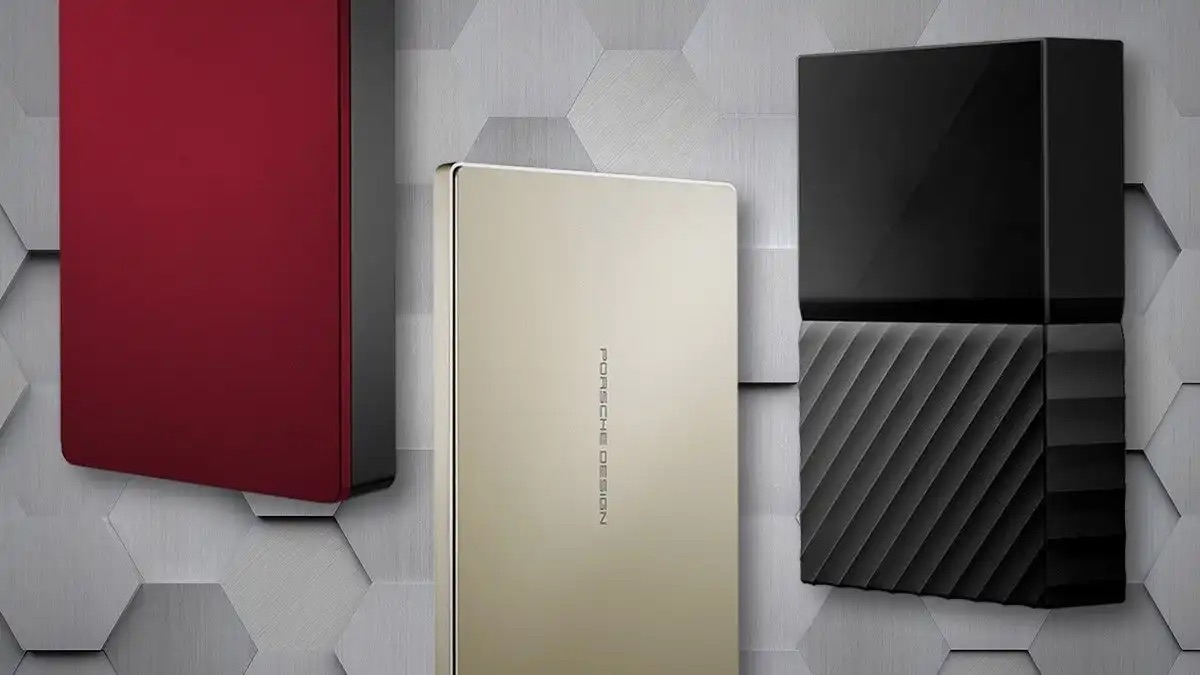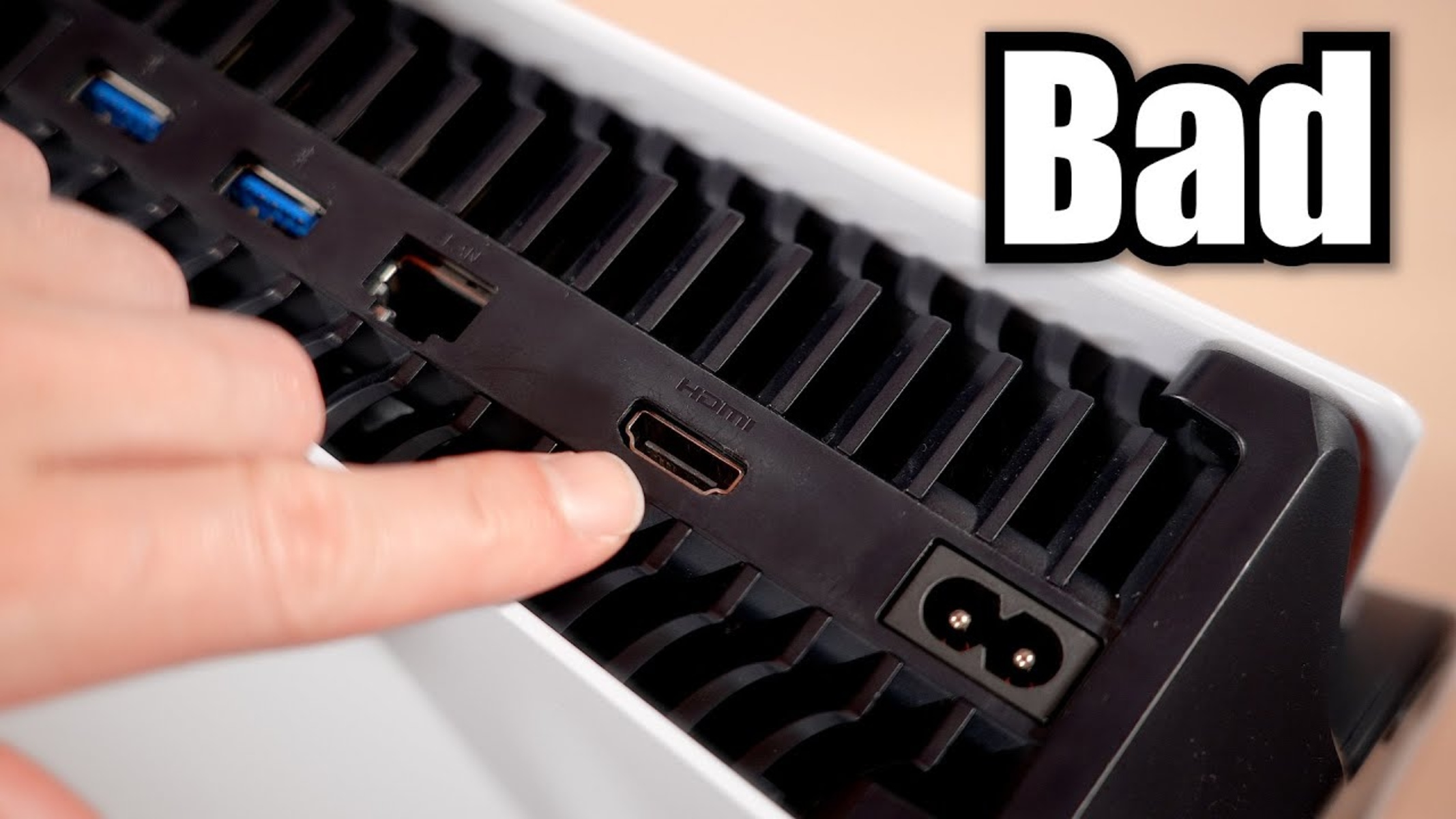Introduction
Welcome to the world of gaming! Whether you’re a seasoned gamer or just starting to dip your toes into the vast gaming universe, having a reliable and powerful gaming laptop is paramount for an immersive gaming experience. However, for those with bad credit, the dream of owning a gaming laptop can seem out of reach.
Having bad credit can make it challenging to get approved for traditional financing options. However, all hope is not lost. There are alternative ways to get your hands on a gaming laptop, even if you have bad credit. In this guide, we will explore various strategies that can help you secure a gaming laptop and get back to doing what you love: gaming.
Before we delve into the different methods and options available to you, let’s start by understanding what bad credit is and how it can impact your ability to get a gaming laptop.
Bad credit refers to a person’s history of not meeting the repayment obligations on their previous credit agreements. This could be due to late payments, defaulting on loans, or having a high level of outstanding debt. When lenders review your credit history and see a poor credit score, they may view you as a high-risk borrower, making it difficult to qualify for traditional financing.
However, it’s important to remember that your credit history does not define you as a person. People can find themselves in financial difficulties due to various circumstances, such as job loss or medical emergencies. The good news is that there are still options available to help you get the gaming laptop you desire.
In the following sections, we will discuss different strategies and approaches to obtaining a gaming laptop with bad credit. From assessing your budget and researching the right laptop to exploring alternative financing options and building your credit, you’ll have a comprehensive guide to help you through the process.
So, let’s dive in and explore the possibilities of getting a gaming laptop, even with bad credit!
Understanding Bad Credit and Its Impact on Getting a Gaming Laptop
Before embarking on the journey to acquire a gaming laptop with bad credit, it’s essential to understand the impact your credit history can have on the process. Lenders and retailers use your credit score and credit report to assess your financial responsibility and determine your creditworthiness. With bad credit, you may face several challenges when trying to secure financing for a gaming laptop.
The first obstacle is limited access to traditional financing options. Banks and credit unions typically have strict lending criteria, including minimum credit score requirements. If your credit score falls below their threshold, you may be denied a loan or credit card. This can be disheartening, especially when your passion for gaming drives your desire to own a gaming laptop.
Additionally, bad credit can result in higher interest rates. Lenders may perceive you as a higher risk borrower, compensating for this perceived risk by charging higher interest rates. As a result, even if you are approved for financing, you may end up paying significantly more over time.
Moreover, bad credit can limit your options when it comes to choosing a gaming laptop. Retailers that offer financing options often have restrictions for customers with poor credit. You may find yourself limited to lower-end models or outdated technology. This can be frustrating when you have specific gaming requirements and are looking to play the latest games with optimal performance.
While bad credit poses challenges, it’s important to remember that it doesn’t define your future. Many alternative solutions and strategies can help you overcome these obstacles and get closer to acquiring the gaming laptop you desire. Throughout this guide, we will explore various methods, including different financing options and ways to build your credit.
Keep in mind that understanding your credit situation is the first step towards improving it. Review your credit report and identify any errors or discrepancies. You can request a free copy of your credit report from the three major credit bureaus – Equifax, Experian, and TransUnion – and dispute any inaccuracies you find. Rectifying errors can positively impact your credit score and increase your chances of approval when seeking financing.
In the following sections, we will delve into strategies to assess your budget, research the right gaming laptop, explore alternative financing options, and even ways to build your credit. By proactively addressing these factors, you can increase your chances of finding a gaming laptop that suits your needs and budget, without being hindered by bad credit.
Now that you have a clearer understanding of how bad credit can affect your pursuit of a gaming laptop, let’s proceed to the next section, where we will examine how to assess your budget and determine your affordability.
Assessing Your Budget and Determining Your Affordability
When it comes to purchasing a gaming laptop, it’s crucial to assess your budget and determine what you can afford. While your heart may desire the highest-end gaming machine, it’s essential to be realistic about your financial situation and avoid overextending yourself.
Start by evaluating your income and expenses to understand how much disposable income you have each month. Look at your monthly bills, such as rent/mortgage, utilities, groceries, transportation, and other necessary expenses. Subtract these costs from your monthly income to determine your discretionary income.
Once you have a clear understanding of your available disposable income, you can set a budget for your gaming laptop. Consider how much you can comfortably afford to allocate towards monthly payments if you choose a financing option. Remember to account for other potential expenses, such as gaming accessories, software, or any additional warranties or insurance you may want.
It’s important to strike a balance between your desired gaming laptop specifications and your budget. While it may be tempting to go for the top-of-the-line model with all the latest features, you may need to make compromises to stay within your affordability range. Identify the essential specifications that are non-negotiable for your gaming needs and prioritize those when exploring different laptop options.
Additionally, consider your gaming requirements. Are you a casual gamer who plays less demanding games, or do you engage in resource-intensive gaming that requires high-performance hardware? Understanding your gaming preferences will assist you in selecting a laptop that meets your requirements without exceeding your budget.
Research different gaming laptops and their price ranges to gain a better understanding of what you can expect within your budget. Take advantage of online reviews, comparison websites, and forums to gather information from other gamers about their experiences with different laptop models.
Remember, affordability goes beyond just the purchase price. Consider the long-term costs as well, such as maintenance, upgrades, and potential repair expenses. It’s essential to choose a laptop that aligns with your budget not only at the time of purchase but also throughout the lifespan of the device.
By carefully evaluating your budget and determining your affordability, you can set realistic expectations for your gaming laptop purchase. This will empower you to make informed decisions while exploring different financing options and negotiating better deals.
With a clear understanding of your budget, it’s time to move on to the next section, where we’ll discuss how to research and compare different gaming laptops to find the right one for you.
Research and Comparison: Finding the Right Gaming Laptop
Now that you have assessed your budget and determined your affordability, it’s time to dive into the exciting process of researching and comparing different gaming laptops. With so many options available in the market, it’s important to find the right laptop that meets your gaming needs, fits within your budget, and offers the best value for your money.
Start by identifying the key specifications and features that matter most to you. Consider factors such as the processor, graphics card, RAM, storage, display size, and resolution. Each of these components plays a crucial role in delivering an optimal gaming experience, so it’s important to prioritize them according to your preferences and gaming requirements.
Online reviews and expert opinions can be invaluable in helping you narrow down your options. Websites and forums dedicated to gaming often have detailed reviews and comparisons of different laptop models. Pay attention to user feedback, as it can provide insight into real-life performance and user satisfaction.
Manufacturer websites and online retailers are another valuable resource for gathering information on various gaming laptops. Explore the specifications, features, and customer reviews to get an overall sense of the laptop’s quality and performance.
When comparing gaming laptops, take note of the price range for each model and how they align with your budget. Keep in mind that higher-end laptops with top-tier components typically come with a higher price tag. It may be worth considering slightly older models or exploring mid-range options that still offer excellent performance but at a more affordable price.
Consider the design and build quality of the laptop as well. A gaming laptop should not only be powerful but also durable and able to withstand the demands of long gaming sessions. Look for laptops with sturdy construction and cooling features to prevent overheating during intense gameplay.
Don’t forget about the laptop’s portability if you plan on gaming on the go. Thin and lightweight gaming laptops provide convenience and ease of transportation, but they often come with compromises in terms of performance and cooling capabilities.
Lastly, make a shortlist of the gaming laptops that meet your criteria and visit local electronics stores if possible. Being able to physically touch and feel the laptops can provide a better sense of their build quality and ergonomics. Additionally, speaking with knowledgeable sales representatives can help clarify any doubts or questions you may have.
By thoroughly researching and comparing different gaming laptops, you’ll be equipped with the knowledge necessary to make an informed decision. The right gaming laptop will not only provide a great gaming experience but also be a long-term investment that brings you joy for years to come.
Now that you’ve narrowed down your options, it’s time to explore different financing options that can help you bring your dream gaming laptop within reach. Please proceed to the next section to learn more.
Exploring Different Financing Options for Purchasing a Gaming Laptop
When it comes to purchasing a gaming laptop with bad credit, exploring alternative financing options can open up possibilities that may not be available through traditional channels. Here, we will discuss several options that can help you bring your dream gaming laptop within reach.
1. Retailer Financing: Many electronics retailers offer in-store financing or credit programs to customers, regardless of their credit history. These programs are designed to make it easier for customers to purchase high-ticket items like gaming laptops. However, it’s important to carefully review the terms and conditions, as interest rates and fees can vary significantly. Ensure that the repayment terms are reasonable and fit within your budget before committing.
2. No-Credit-Check Financing: Some online retailers and finance companies provide no-credit-check financing options. These programs typically have more lenient approval requirements, making it easier to qualify for a loan or lease agreement. However, bear in mind that these options often come with higher interest rates and fees due to the increased risk for the lender. Evaluate the terms and compare them with other financing options to determine if it’s the best choice for your circumstances.
3. Peer-to-Peer Lending: Peer-to-peer lending platforms connect borrowers with individual investors who are willing to fund the loan. These platforms often consider factors beyond just credit scores when evaluating loan applications. If you have a compelling story or a strong repayment plan, you may be able to secure a loan to purchase your gaming laptop. Research different peer-to-peer lending platforms and carefully read the terms and interest rates associated with each option.
4. Secured Loans: If you have valuable assets, such as a car or property, you may be able to secure a loan using these assets as collateral. The lender will hold the asset as security in case you default on the loan. Secured loans typically have lower interest rates compared to unsecured loans, making it a potentially more affordable option. However, bear in mind that defaulting on the loan could result in the loss of the secured asset.
5. Credit Card with Bad Credit: While it may be challenging to get approved for a traditional credit card with bad credit, there are specific credit cards designed for individuals with less-than-perfect credit. These cards often have higher interest rates and lower credit limits, but they can be a useful tool for building or rebuilding credit. Use the card responsibly by making small purchases and paying off the balance in full each month to demonstrate your creditworthiness.
Remember to thoroughly research and compare the terms and costs associated with each financing option. Consider the interest rates, fees, repayment terms, and any potential penalties for early repayment. By evaluating these factors, you’ll be able to make an informed decision that aligns with your financial situation and affordability.
Now that you have a better understanding of the different financing options available to you, it’s time to explore specific strategies for overcoming bad credit and improving your chances of approval. The next section will provide insights on applying for a personal loan or credit card specifically designed for individuals with bad credit.
Applying for a Personal Loan or Credit Card for Bad Credit
When faced with bad credit, applying for a personal loan or credit card specifically designed for individuals with less-than-perfect credit can be a viable option for financing your gaming laptop. While these options may have higher interest rates and stricter approval criteria, they can provide an opportunity to rebuild your credit while acquiring the laptop you desire.
1. Personal Loans: Research lenders that specialize in personal loans for individuals with bad credit. These lenders consider factors beyond just your credit score and may look at your income and employment history. Be prepared to provide documentation that supports your ability to repay the loan, such as pay stubs or bank statements. Compare interest rates, terms, and fees from different lenders to find the most favorable loan option for your financial situation.
2. Secured Personal Loans: If you have valuable assets such as a vehicle, jewelry, or other valuable items, you may be able to secure a personal loan by using these assets as collateral. By providing collateral, you reduce the lender’s risk, which can improve your chances of approval and potentially lower the interest rate on the loan. However, it’s important to assess the risks involved and ensure that you can make the necessary repayments to avoid losing the secured asset.
3. Bad Credit Credit Cards: Many credit card companies offer credit cards specifically tailored for individuals with bad credit. These cards may have lower credit limits and higher interest rates, but they can provide an opportunity to build or rebuild your credit if used responsibly. Make small purchases and pay off the balance in full each month to demonstrate good financial habits.
When applying for a personal loan or credit card, it’s essential to be realistic about your financial situation. Only borrow what you can comfortably afford to repay, taking into account the interest charges and any associated fees. Keep in mind that timely repayments will not only help you acquire the gaming laptop you desire but also contribute to improving your credit score over time.
Before applying for any loan or credit card, gather all the necessary documentation and check your credit report for any errors or inaccuracies. Dispute any discrepancies you find to ensure that your credit report reflects the most accurate information possible. Remember that every application you submit can result in a hard inquiry on your credit report, which can temporarily impact your credit score. Apply selectively and only after conducting thorough research on the lender’s reputation and terms.
By successfully securing a personal loan or credit card for bad credit, you’ll have another avenue to finance your gaming laptop while working towards improving your credit standing. However, it’s important to use these opportunities responsibly and make repayments on time to avoid further damage to your credit and financial difficulties.
With a better understanding of personal loans and credit cards for bad credit, let’s explore another potential option for acquiring a gaming laptop with bad credit: rent-to-own programs and lease agreements. Proceed to the next section to learn more.
Considering Rent-to-Own Programs and Lease Agreements
For individuals with bad credit, rent-to-own programs and lease agreements provide an alternative route to obtaining a gaming laptop without the need for upfront payment or traditional financing. These options allow you to lease a gaming laptop for a specified period, with the option to purchase it at the end of the lease term. Here, we’ll explore the benefits and considerations of rent-to-own programs and lease agreements.
Rent-to-Own Programs: Rent-to-own programs allow you to “rent” a gaming laptop for a fixed term, during which you make monthly payments. These programs often do not require a credit check, making them accessible to individuals with bad credit. While the monthly payments may be higher compared to other financing options, the advantage is that you can use the laptop immediately without the need for a large upfront payment. At the end of the lease term, you have the option to purchase the laptop by paying a residual amount, usually predetermined in the agreement.
When considering a rent-to-own program, carefully review the terms and conditions, including the total cost of ownership and any additional fees. Ensure that the overall cost aligns with the market value of the laptop and that you can afford the monthly payments for the duration of the lease.
Lease Agreements: Lease agreements are another option for acquiring a gaming laptop with bad credit. Unlike rent-to-own programs, lease agreements do not offer the option to purchase the laptop at the end of the term. Instead, you pay a fixed monthly amount for the duration of the lease, typically ranging from 12 to 36 months. At the end of the lease term, you return the laptop to the leasing company or have the option to upgrade to a newer model.
One advantage of lease agreements is the flexibility to upgrade to newer technology once the lease term ends. This can be particularly appealing for gamers who want to stay up-to-date with the latest hardware advancements. However, it’s important to consider the total cost of leasing over the term and whether the benefits of upgrading outweigh the financial implications.
Before entering into a rent-to-own program or lease agreement, thoroughly research the leasing company or retailer offering the program. Look for reviews, ratings, and customer experiences to ensure they have a trustworthy reputation and transparent terms.
While rent-to-own programs and lease agreements can be viable options for obtaining a gaming laptop with bad credit, it’s essential to carefully evaluate the overall cost and whether the benefits align with your long-term goals and financial situation. Consider the duration of the agreement, the total cost of ownership, and whether you have the option to purchase the laptop at the end.
Now that you have explored the options of rent-to-own programs and lease agreements, let’s move on to discussing strategies for building credit to improve your chances of approval for traditional financing in the future.
Building Credit to Improve Your Chance of Approval
If you have bad credit, taking steps to build or rebuild your credit can have a positive impact on your ability to secure financing in the future. Building good credit not only increases your chances of approval but also opens up more favorable terms and lower interest rates. Here are some strategies to help you improve your creditworthiness:
1. Pay bills on time: Consistently making timely payments on your existing debts, such as credit cards, loans, and utilities, demonstrates your financial responsibility. Set up automatic payments or create reminders to ensure you don’t miss any due dates.
2. Reduce credit card balances: Paying down credit card balances can help improve your credit utilization ratio, which is the amount of credit you are using compared to your total available credit. Aim to keep your credit utilization below 30% to demonstrate responsible credit management.
3. Establish a credit history: If you don’t have any credit accounts, consider establishing a credit history by applying for a secured credit card or becoming an authorized user on someone else’s credit card. Responsible use of these accounts can help you build a positive credit history.
4. Diversify credit lines: Having a mix of different types of credit, such as credit cards, installment loans, and mortgages, can demonstrate your ability to manage various forms of credit. However, be cautious about applying for multiple accounts at once, as each application can result in a hard inquiry on your credit report.
5. Review your credit report: Regularly review your credit report to ensure its accuracy and identify any errors or inconsistencies. Dispute any incorrect information to have it corrected, as this can potentially boost your credit score.
6. Avoid closing credit accounts: While it may be tempting to close unused credit card accounts, keeping them open can help increase your total available credit and improve your credit utilization ratio. However, use caution and only keep accounts open if they do not have annual fees or encourage unnecessary spending.
7. Seek professional assistance if needed: If you’re overwhelmed or unsure how to improve your credit, consider working with a reputable credit counseling agency. They can provide guidance on managing your debts, creating a budget, and improving your credit score.
Remember, building good credit takes time and patience. It’s a gradual process that requires consistent and responsible financial habits. As you improve your credit, you’ll become more attractive to lenders and have a better chance of securing traditional financing options for your gaming laptop.
Now that you have a better understanding of how to build credit, let’s move on to the next section, where we’ll explore tips for negotiating a better deal when purchasing a gaming laptop.
Tips for Negotiating a Better Deal
When it comes to purchasing a gaming laptop with bad credit, negotiating a better deal can help you save money and improve your overall financing terms. Here are some tips to consider when negotiating the purchase of your gaming laptop:
1. Research the market: Before entering into negotiations, conduct thorough research on the current market prices for the gaming laptop you desire. This knowledge will empower you to negotiate from an informed standpoint and recognize if you’re getting a fair deal.
2. Compare prices and offers: Explore different retailers and online platforms to find the best price for the gaming laptop you want. Take advantage of price-matching policies and discounts to ensure you’re getting the most value for your money. Consider refurbished or open-box options which may offer lower prices without sacrificing quality.
3. Use your knowledge: Armed with your research, confidently approach the retailer or seller to negotiate a better price. Highlight the competitive offers you found and explain how their price can be adjusted to align with the market value.
4. Bundle deals: Inquire about any available bundle deals or promotional offers that the retailer may have. Retailers often offer discounts or free accessories when purchasing multiple items together. By bundling your gaming laptop with necessary peripherals or software, you may be able to negotiate a better overall deal.
5. Focus on total cost: Rather than solely concentrating on the monthly payment or purchase price, consider the total cost of ownership. Calculate the interest charges, fees, and additional expenses associated with financing options. This perspective will help you negotiate a deal that aligns with your long-term affordability.
6. Ask about flexible financing: Inquire with the retailer or financing provider about flexible payment options based on your financial situation. They may be willing to adjust the repayment terms to fit your budget, such as longer terms with lower monthly payments or deferred payment options.
7. Leverage your loyalty: If you have been a loyal customer of a particular retailer, don’t be afraid to negotiate based on your past patronage. Express your loyalty and inquire if they can offer any exclusive discounts or perks to reward your continued business.
8. Consider trade-in options: If you have an existing gaming laptop or other electronics, explore trade-in options. Some retailers might accept your old device as a trade-in value towards the purchase of a new gaming laptop, reducing the overall cost.
9. Be willing to walk away: If the negotiation isn’t going as planned or you feel the terms are not favorable, be prepared to walk away. Sometimes, by being willing to walk away, the seller may become more willing to negotiate and offer a better deal to keep your business.
Remember, negotiation requires confidence and preparedness. Approach the negotiation process with a clear understanding of your budget, the market value of the product, and your desired terms. Be friendly, yet assertive, and willing to explore different options to find a mutually agreeable deal.
With these negotiation tips in mind, you are ready to secure the best possible deal for your gaming laptop. In the final section of this guide, we will summarize the key points discussed and provide a recap of the strategies and options available to you.
Final Thoughts and Recap
Acquiring a gaming laptop with bad credit may present some challenges, but with the right strategies and knowledge, you can still make your dream a reality. Throughout this guide, we have explored various techniques and options to help you navigate the process successfully. Let’s recap the key points:
We started by understanding the impact of bad credit on obtaining a gaming laptop. Bad credit can limit your access to traditional financing options and result in higher interest rates. However, alternative paths exist that can make a gaming laptop attainable.
Assessing your budget and determining your affordability is crucial. Consider your income, expenses, and gaming requirements to establish a budget that aligns with your financial situation.
Researching and comparing different gaming laptops will help you find the right laptop that meets your gaming needs and fits within your budget. Consider important specifications, read user reviews, and visit electronics stores for a hands-on experience.
Exploring different financing options is essential for acquiring a gaming laptop with bad credit. Retailer financing, no-credit-check financing, peer-to-peer lending, secured loans, and specialized credit cards can provide alternative approaches for obtaining the funds you need.
Applying for a personal loan or credit card designed for individuals with bad credit can give you the chance to build credit while acquiring your gaming laptop. Responsible use and timely payments improve your creditworthiness over time.
Rent-to-own programs and lease agreements offer alternative ways to finance a gaming laptop without requiring traditional credit approval. Evaluate the total cost and terms to determine if these options are suitable for your needs.
Building credit is crucial for future financial opportunities. Paying bills on time, reducing credit card balances, and establishing a credit history are key components in improving your credit score and overall creditworthiness.
Negotiating a better deal can save you money and improve your financing terms. Research the market, compare prices, bundle deals, focus on total cost, and be willing to walk away if the terms aren’t favorable.
With these strategies and options in mind, you are well-equipped to pursue a gaming laptop with bad credit. Remember to stay proactive, do thorough research, and make informed decisions based on your budget and gaming needs.
However, it’s essential to note that while you can acquire a gaming laptop with bad credit, it’s crucial to improve your financial habits and credit score over time. Building credit and managing your finances responsibly will open up doors to more favorable financing options in the future.
We hope this guide has provided you with valuable insights and guidance. Good luck on your journey to obtaining a gaming laptop, and may your gaming experiences be filled with excitement and enjoyment!

























